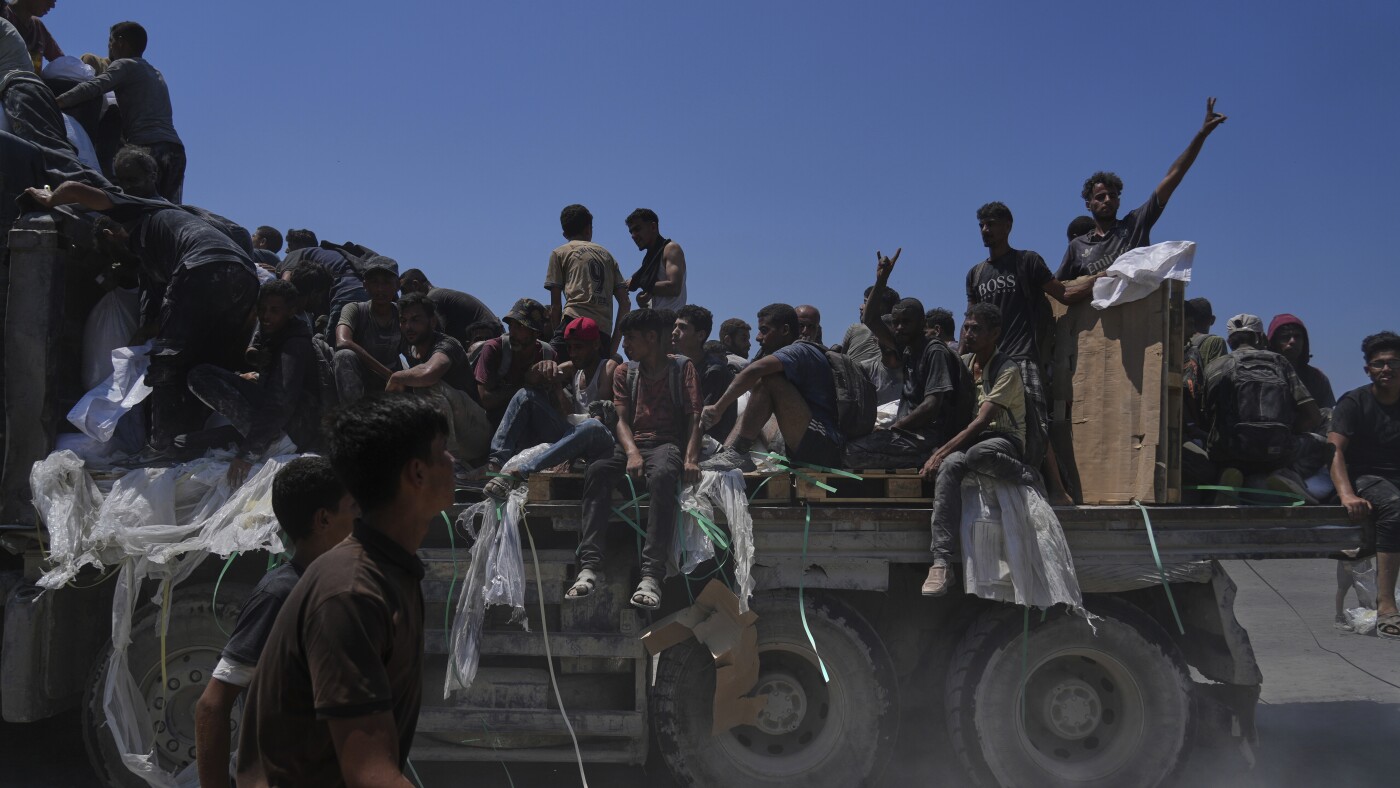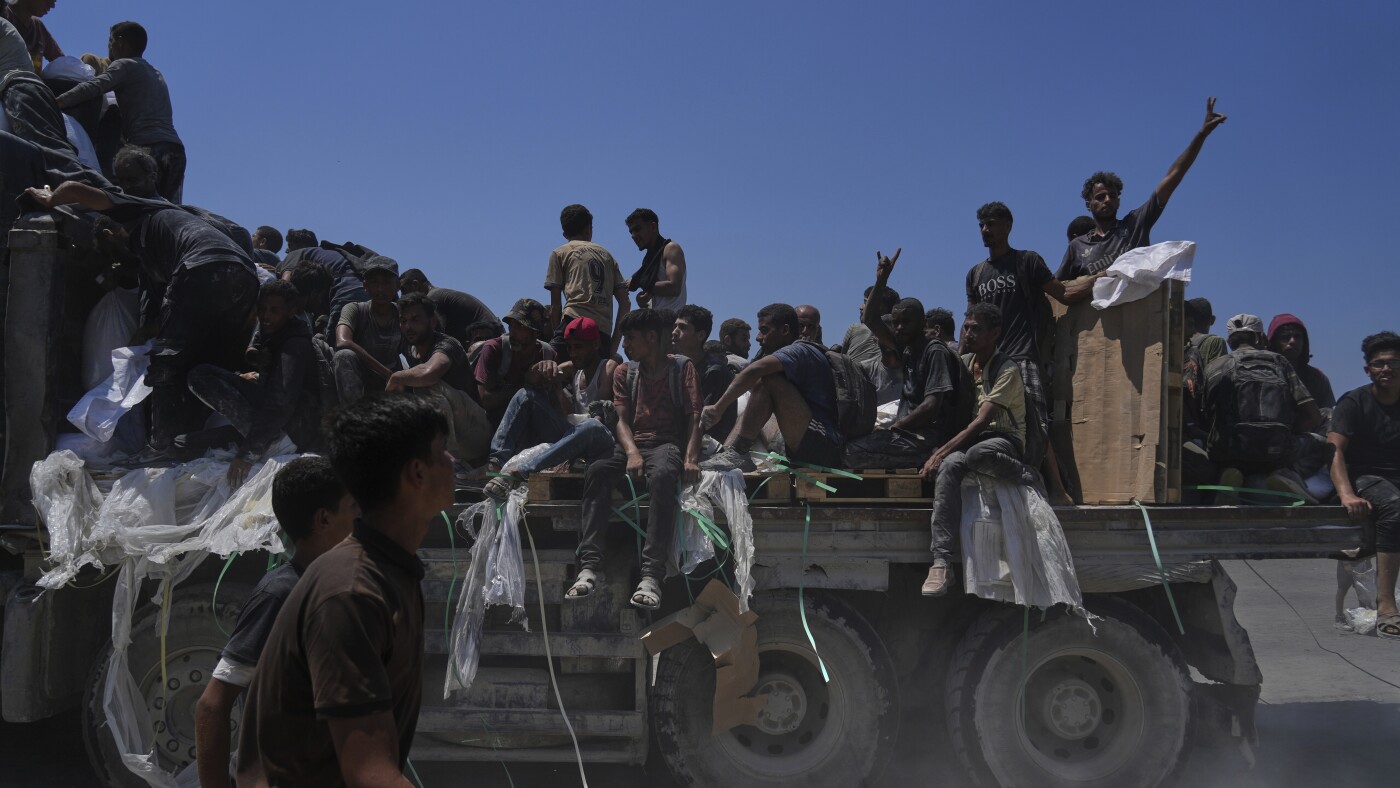The Accusation of Genocide: A Critical Examination of Claims Against Israel in Gaza
Introduction: The Weight of the Term “Genocide”
The term “genocide” is not one to be used lightly. It carries with it the weight of history, evoking images of systematic destruction and the intentional annihilation of a people. When applied to the Israeli-Palestinian conflict, particularly in the context of Gaza, it demands a rigorous examination of the facts, the legal definitions, and the intentions behind the actions in question. Recently, this term has been used by some Israeli human rights organizations to describe the actions of their own government, marking a significant shift in the discourse surrounding the conflict.
The Accusers: B’Tselem and Physicians for Human Rights-Israel
The organizations bringing forth these accusations are not fringe groups but well-established and respected entities within the human rights community. B’Tselem, founded in 1989, has a long history of documenting human rights violations in the occupied Palestinian territories. Their reports have consistently highlighted issues such as excessive force, displacement, and restrictions on movement imposed on Palestinians. Similarly, Physicians for Human Rights-Israel (PHRI) has been a vocal advocate for the right to health for all individuals, including those living under Israeli occupation. Their work focuses on the impact of the occupation on healthcare access and provision in Gaza and the West Bank.
The decision by these organizations to use the term “genocide” is not one made lightly. It suggests a profound assessment of the situation, one that has led them to conclude that the actions of the Israeli government meet the criteria set out in the 1948 Genocide Convention. This convention defines genocide as acts committed with the intent to destroy, in whole or in part, a national, ethnical, racial, or religious group. The key element here is intent, which is a high legal hurdle to overcome.
The Context: The Gaza Conflict
The accusations of genocide stem from the ongoing conflict in Gaza, particularly the recent military operations in response to attacks by Hamas and other militant groups. The scale of destruction, the high number of casualties, and the dire humanitarian situation in Gaza are key factors cited by the rights groups.
Casualties: A Human Toll
The sheer number of Palestinian deaths, including a significant proportion of women and children, is a primary concern. While Israel maintains that it targets Hamas militants and takes precautions to avoid civilian casualties, critics argue that the scale of destruction indicates a disregard for Palestinian lives. The United Nations has reported that the number of Palestinian casualties in recent conflicts has been disproportionately high compared to Israeli casualties, raising questions about the proportionality of the response.
Destruction of Infrastructure: A Deliberate Strategy?
The extensive damage to homes, schools, hospitals, and other civilian infrastructure raises further questions about the proportionality of the military response. The destruction of healthcare facilities is particularly alarming, as it severely limits access to medical care for the population. The World Health Organization has reported that the healthcare system in Gaza is on the verge of collapse, with hospitals overwhelmed by the number of casualties and a severe shortage of medical supplies.
Humanitarian Crisis: A Blockade’s Consequences
The blockade of Gaza, which has been in place for years, has created a dire humanitarian situation. Restrictions on the entry of goods, including food, medicine, and fuel, have led to widespread poverty, malnutrition, and disease. The ongoing conflict has exacerbated this crisis, leaving many Palestinians without access to basic necessities. The United Nations has warned that the situation in Gaza is approaching a humanitarian catastrophe, with the population facing a severe shortage of food, water, and medical supplies.
Defining Genocide: The Intent Factor
The 1948 Genocide Convention defines genocide as “acts committed with intent to destroy, in whole or in part, a national, ethnical, racial or religious group.” The key element in this definition is intent. Proving that a state is committing genocide requires demonstrating that its actions are specifically aimed at eliminating a protected group. This is where the debate becomes particularly complex. While the consequences of Israeli actions in Gaza are undeniably devastating, proving genocidal intent is a high legal hurdle.
Arguments Supporting the Accusation
Those arguing that Israel is committing genocide point to several factors that, taken together, suggest genocidal intent:
Disproportionate Force: A Pattern of Excess
The argument is made that the scale of destruction and the number of civilian casualties are far in excess of what is necessary to achieve legitimate military objectives. This suggests a deliberate targeting of the Palestinian population. The United Nations has repeatedly expressed concern about the disproportionate use of force by Israeli forces in Gaza, with the UN Human Rights Council concluding that there is a reasonable basis to believe that war crimes have been committed.
Dehumanizing Rhetoric: The Language of Genocide
Some observers point to instances of dehumanizing language used by Israeli officials and in the media, portraying Palestinians as less than human or as an existential threat. Such rhetoric, they argue, can create an environment in which genocide becomes more likely. The use of terms such as “human animals” to describe Palestinians has been widely condemned by human rights organizations, who argue that it contributes to a climate of hatred and violence.
Restrictions on Humanitarian Aid: A Deliberate Strategy?
The restrictions on the entry of humanitarian aid into Gaza, despite the clear need for assistance, are seen by some as evidence of an intent to create conditions that will lead to the destruction of the Palestinian population. The United Nations has repeatedly called for the lifting of the blockade, arguing that it is a collective punishment of the Palestinian population and a violation of international law.
Targeting of Healthcare: A Violation of International Law
The targeting of hospitals and medical personnel, despite being protected under international law, is viewed as a deliberate attempt to weaken the Palestinian population’s ability to survive. The World Health Organization has reported that the healthcare system in Gaza is on the verge of collapse, with hospitals overwhelmed by the number of casualties and a severe shortage of medical supplies. The targeting of healthcare facilities has been widely condemned by the international community, with the UN Secretary-General describing it as a “war crime.”
Counterarguments and Alternative Interpretations
Those who reject the accusation of genocide offer alternative interpretations of the situation:
Self-Defense: The Israeli Perspective
Israel maintains that its actions in Gaza are acts of self-defense, aimed at protecting its citizens from attacks by Hamas and other militant groups. They argue that Hamas deliberately uses civilians as human shields and that the high number of casualties is a result of this tactic. The Israeli government has consistently stated that it takes precautions to avoid civilian casualties, including issuing warnings before airstrikes and providing safe corridors for civilians to evacuate.
Unintentional Consequences: The Complexity of War
While acknowledging the suffering of the Palestinian population, some argue that the destruction and casualties are unintentional consequences of legitimate military operations. They point to the complexity of urban warfare and the difficulty of distinguishing between combatants and civilians in densely populated areas. The Israeli military has acknowledged that mistakes have been made, but maintains that it operates within the framework of international law.
Lack of Genocidal Intent: A Matter of Interpretation
They emphasize that Israel has no desire to eliminate the Palestinian people and that its actions are aimed at achieving specific security objectives. The Israeli government has consistently stated that it seeks a two-state solution to the conflict and is committed to the principles of international law. However, critics argue that the actions of the Israeli government on the ground tell a different story, with policies such as settlement expansion and the blockade of Gaza undermining the prospects for peace.
Complex Conflict Dynamics: The Role of Hamas
They point to the complex dynamics of the conflict, including the role of Hamas and other militant groups, as contributing factors to the suffering of the Palestinian population. Hamas’s use of civilian infrastructure for military purposes, such as the placement of rocket launchers in schools and hospitals, has been widely documented. The Israeli government argues that this makes it difficult to avoid civilian casualties and that Hamas bears responsibility for the suffering of the Palestinian population.
The Implications of the Accusation
The accusation of genocide, regardless of its ultimate validity, has significant implications:
International Scrutiny: The Role of the International Criminal Court
It puts Israel under intense international scrutiny, potentially leading to investigations by international bodies such as the International Criminal Court (ICC). The ICC has already opened a preliminary examination into the situation in Palestine, with a focus on alleged war crimes committed by both Israeli forces and Palestinian armed groups. The accusation of genocide could further expand the scope of this investigation.
Legal Ramifications: The Potential for Sanctions
If Israel is found to have committed genocide, it could face severe legal consequences, including sanctions and other forms of international pressure. The UN General Assembly has already adopted several resolutions condemning Israel’s actions in Gaza and calling for an end to the blockade. The accusation of genocide could further isolate Israel internationally and damage its relations with key allies.
Political Impact: The Erosion of International Support
The accusation could further isolate Israel internationally and damage its relations with key allies. The United States, Israel’s closest ally, has traditionally shielded Israel from international criticism and legal action. However, the Biden administration has expressed concern about the humanitarian situation in Gaza and has called for a ceasefire. The accusation of genocide could further erode international support for Israel and make it more difficult for the US to continue to provide unconditional support.
Moral Implications: The Question of Accountability
The accusation raises profound moral questions about the conduct of the conflict and the treatment of the Palestinian population. It challenges the international community to hold Israel accountable for its actions and to take concrete steps to address the humanitarian crisis in Gaza. The accusation also raises questions about the role of the international community in preventing genocide and protecting vulnerable populations.
Domestic Divisions: The Polarization of Israeli Society
Within Israel, the accusation has sparked intense debate and further polarized public opinion. While some Israelis support the actions of their government, others have expressed concern about the humanitarian situation in Gaza and the use of the term “genocide.” The accusation has also highlighted divisions within Israeli society, with some arguing that it is a legitimate criticism of government policy, while others see it as an attempt to delegitimize Israel.
Conclusion: A Call for Accountability and Justice
The accusations of genocide against Israel are a serious matter that warrants careful consideration. While proving genocidal intent is a high legal bar, the evidence presented by B’Tselem, PHRI, and others raises serious questions about the conduct of the conflict in Gaza. Regardless of whether the threshold of genocide has been met, it is clear that the suffering of the Palestinian population is immense and that all parties to the conflict must be held accountable for their actions.
The situation demands a renewed commitment to seeking a just and lasting resolution to the Israeli-Palestinian conflict, one that respects the rights and dignity of all individuals and ensures that such accusations never arise again. The path forward requires a commitment to international law, accountability for human rights violations, and a genuine effort to address the underlying causes of the conflict. Only then can we hope to create a future where both Israelis and Palestinians can live in peace and security.








